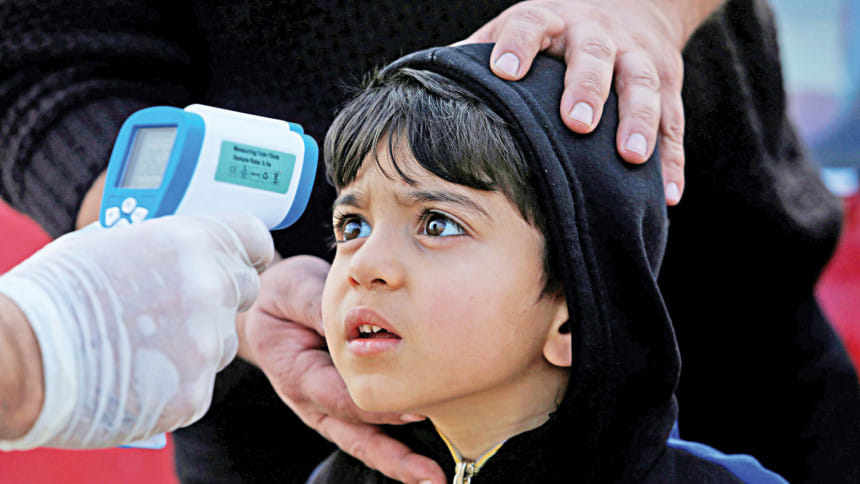Vaccinating children against COVID-19

The world is in the midst of the COVID-19 pandemic which has spread rapidly across the world. The pandemic is already having a serious impact especially on global and national economies, health and education systems, and ultimately on the fulfilment of children's rights. Governments all over the world have implemented several measures to contain the spread of COVID-19, ranging from social distancing, behavioural changes to home quarantine, school closures, business closures and community lockdown, all of which have had secondary impacts on about 1.5 billion children and their households.
Vaccination is a success story of global health and development, saving millions of lives every year, in each of the corners of the world. Vaccines reduce the risks of getting a disease by working with our body's natural defences to build protection. If the body is exposed to the disease-causing germs later, the body is immediately ready to destroy them and prevents illness. It is a key component of primary health care and an indisputable human right. It is also one of the best health sector investments.
The COVID-19 vaccine contains material from the causative virus that gives our cells instructions for how to make a harmless protein that is unique to the virus. The vaccine will help our body to develop immunity to the virus that causes COVID-19.
Vaccination can liberate us to return to school or work, celebrate holidays, eat in restaurants, travel, go on a vacation and run all sorts of economic activities. We look to vaccines to give us back our world; children back in their classrooms, on soccer fields, and at birthday parties which are essential elements of the normal world and we need to help children to get there. We must have to minimise our children's risk, maximise their chances of returning to school, and mitigate the pandemic's effects on their families.
Globally, about 26% of the population is under 15 years of age thus an effective herd immunity will certainly require the coverage of paediatric vaccination. Vaccinating children is likely to have benefits both direct (protecting children against COVID-19 and its associated grave effect -multisystem inflammatory syndrome in children [MIS-C]) and indirect (protecting others by reducing the spread). So we need to think creatively and empathically about what motivates parents to accept vaccination for their offsprings.
The data from the paediatric-focused studies and post-licensure monitoring for potential rare outcomes such as vaccine-associated MIS-C are a bare minimum, as is ensuring just and equitable access to vaccination. A societal decision-making regarding vaccinating the children and assurance from the government regarding widespread access to testing, and institutional support for parents, teachers, and other caregivers would help protect families in this stressful period.
The Expanded Programme on Immunisation (EPI) is one of the most successful public health interventions in Bangladesh. The ever-successful EPI vaccination campaigns may offer relevant insights about parents' decisions regarding vaccinating their children; about building societal trust, access, and equity; and about how to mitigate the targeted disinformation regarding the safe and effective vaccine.
Today planning for the implementation of COVID-19 vaccination requires not only working out details of its distribution and cold chains but also strategies for reaching distrustful, hesitant, dubious people and convincing them to get ready to vaccinate their children whenever it will be available for them.
Protecting children against COVID-19 infection is both an ethical obligation and a practical necessity. We need to disseminate the data from paediatric trials to reassure parents about the safety and efficacy of this approach. The physicians' community has already been trying to build a social motivation for vaccination through social media. Other trusted messengers of our society may help to encourage the mass population in this regard and help to bring the lovely days back in our lives.
Dr Abdullahel Amaan is a Resident at the Department of Neonatology, Bangabandhu Sheikh Mujib Medical University, Bangladesh. Email: [email protected]
Dr Khainoor Zahan is a Deputy Director at the Bangladesh National Nutrition Council (BNNC), Bangladesh. Email: [email protected]

 For all latest news, follow The Daily Star's Google News channel.
For all latest news, follow The Daily Star's Google News channel. 



Comments